:max_bytes(150000):strip_icc():focal(629x368:631x370)/Florida-State-University-in-Tallahassee-shooting-041725-3a9269e1237846fe950654c46dd7e6b6.jpg,https://interactives.lowyinstitute.org/features/2024-us-presidential-election/donald-trump/img/article/trump-and-ukraine.jpg)
THREAD: trump 104 china tarifs stun
LifeLine™ Media threads use our sophisticated algorithms to construct a thread around any topic you want, providing you with a detailed timeline, analysis, and related articles.
News Timeline


TRUMP’S Tarif Pause: A 90-Day Relief or Just a Temporary Truce?
— Trump’s decision to pause tariffs for 90 days on April 9, 2025, sparked a market surge and mixed reactions from business leaders. Many CEOs felt relieved, but China’s retaliatory 125% levy complicates the situation. Companies like Micron are adding surcharges, and retailers warn of possible price hikes by summer 2025.
For business leaders, the tariff pause offers temporary relief but doesn’t resolve ongoing tensions with China that keep global supply chains shaky. Jamie Dimon of JPMorgan called the tariffs a “self-inflicted wound,” showing how complex this issue is. While some pressure eases, a baseline duty of 10% stays in place with threats looming after this period ends.
Wall Street reacted positively to Trump’s announcement, but business leaders are split between cautious optimism and frustration over future uncertainties. The question remains whether this is a genuine truce or just a temporary timeout in an ongoing trade conflict with China. As companies face these challenges, they hope for more stable trade policies ahead.

TRUMP’S Tariff CUT Sparks Stock Market Surge
— In a bold move, President Donald Trump announced a temporary cut in tariffs for many countries, while raising them for China. This decision caused U.S. stock indexes to soar, with the S&P 500 seeing its biggest gain since 2008, closing 9.5% higher. Trump’s tariff strategy aims to increase pressure on China amid ongoing trade tensions.
The announcement led to a sharp drop in the Cboe Volatility Index (VIX), which fell by 15 points to 37.2 after news of a 90-day tariff pause for most nations. However, China’s response was quick as they imposed an 84% retaliatory tariff on U.S. goods following the new U.S. levy on Chinese imports that took effect at midnight. This escalation adds uncertainty to global markets despite the initial boost in U.S stocks.
Meanwhile, on the home front, the U.S government has started monitoring immigrants’ social media accounts for signs of antisemitism as part of enhanced security measures. This initiative reflects growing concerns over hate speech and its potential impact on national security and social cohesion within immigrant communities across America.;
TRUMP’S 104% China Tarifs Stun Global Markets
— The UK and EU stock markets are feeling the pressure as President Trump’s tariffs, including a steep 104% on Chinese goods, take effect. EU trade commissioner Maroš Šefčovič announced that the EU will not retaliate against these U.S. tariffs, citing limited options for response. European Commission President Ursula von der Leyen suggested a “zero-for-zero” trade deal to the White House amid talks of an EU-US free trade zone by Trump adviser Elon Musk.
Concerns about the economic impact of these tariffs are growing in Europe. Patrick Martin, head of France’s Medef business lobby, warned that U.S. tariffs could harm France’s economic growth and possibly lead to a recession. Meanwhile, Wall Street has also taken a hit as hopes for tariff delays fade, with the S&P 500 dropping 1.6%.
Elon Musk has publicly criticized Trump adviser Peter Navarro over comments related to Tesla and the broader effects of U.S. tariffs on American businesses. In other business news unrelated to tariffs, a Chinese billionaire is looking to purchase multiple Hudson’s Bay locations in Canada due to an emotional connection with the brand and aims to prevent its financial collapse. Binding bids for these assets are expected by April 30th with lease offers due by May 1st.;

TRUMP’S BOLD Defense of US Trade Tariffs Stirs Controversy
— Former President Donald Trump is firmly defending the sweeping tariffs from his time in office, despite facing backlash. He argues these tariffs are vital to protect American jobs and industries, saying, “sometimes you have to take medicine.”
Critics warn these tariffs might raise consumer prices and spark retaliation from countries like China. Analysts suggest Trump’s stance could energize his base in key battleground states where manufacturing jobs matter most.
Trump supporters believe the tariffs will revive American manufacturing, even as protests against them grow in various cities. Demonstrators claim the economic impact will hit the working class hardest.
The tariff debate becomes crucial ahead of elections, shaping voter opinions and party strategies. Republican leaders are split on Trump’s policies, with some worried about possible economic fallout.

TRUMP’S Trade Policy Shocks: US Stocks Plunge in Market Chaos
— The EURO has surged to a six-month high as investors react to the latest U.S. tariff announcements. Meanwhile, the Australian dollar has taken a hit, reflecting global market volatility. These currency shifts highlight ongoing economic uncertainties fueled by international trade tensions.
U.S. stock futures have plummeted after China’s retaliatory tariffs on American goods, marking another phase in the global trade conflict. The Dow Jones dropped 1,679 points, causing widespread concern among investors and financial strategists who urge calm and strategic planning during these turbulent times.
Bitcoin ETFs saw nearly $100 million in net outflows as markets reacted sharply to tariff news from the Trump administration. This exodus underscores investor anxiety and uncertainty about future economic conditions amid escalating trade disputes with China.
Goldman Sachs has revised its oil price forecasts downward due to fears of a potential recession and increased supply from OPEC+. Gold prices have steadied after an initial selloff triggered by aggressive U.S. tariff policies, indicating cautious optimism among investors seeking safe-haven assets in uncertain times.

CHINA’S 34% Tariff Shock: How It Could Hurt American Wallets
— China has slapped a 34% tariff on U.S. goods, ramping up trade tensions. This follows recent U.S. tariffs on Chinese imports, sparking fears of a trade war.
Experts warn these tariffs might harm American businesses and consumers by raising prices and slowing economic growth. Washington is concerned about undoing post-pandemic recovery efforts.
The Trump administration is considering countermeasures and may seek international support to tackle China’s trade practices. This situation has ignited debates over the future of U.S.-China relations and global trade dynamics.
Financial markets reacted quickly, with stocks dropping due to fears that escalating conflicts could further destabilize the global economy. These developments could significantly affect both U.S.-China relations and international markets.
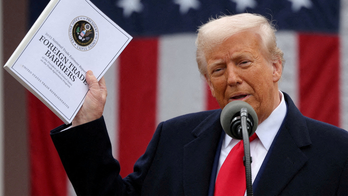
TRUMP’S Trade WAR Shocks: China And EU Face Major Impacts
— President Donald TRUMP announced sweeping tariffs affecting nearly all U.S. trading partners. China and the EU are hit hardest. The White House imposed a 10% tariff on all imports, with China facing an additional 34% on top of an existing 20%, totaling a hefty 54%. This move is just shy of Trump’s campaign promise of a 60% tariff on Chinese goods.
China reacted strongly, promising countermeasures against what it calls “protectionism.” The Chinese Commerce Ministry argues that trade wars have no winners and urges the U.S. to resolve differences through fair talks. Meanwhile, European nations face a blanket 20% tariff along with existing tariffs on steel, aluminum, and car exports.
Canada’s Prime Minister Carney has vowed to “fight” these tariffs as other world leaders assess their economic impact. The European Union has also promised retaliation against Trump’s aggressive trade policies. As tensions rise globally, nations brace for potential economic fallout from this escalating trade war initiated by the U.S..
TRUMP’S 10% Tarifts Spark Stock Market Chaos
— U.S. stocks plunged after President Trump announced a 10% tariff on all trading partners. The Dow dropped about 1,300 points, with the S&P 500 and Nasdaq also taking hits. Investors quickly reacted, showing concern over potential economic fallout.
President Trump plans to impose reciprocal tariffs starting at 10%, targeting countries worldwide and adding extra duties for “worst offenders.” This move has unsettled markets and might lead to higher consumer costs and a possible recession. Economists are worried about the long-term effects on both domestic and global economies.
Globally, the response has been mostly negative, with many countries considering countermeasures to protect their economies from these new tariffs. This rise in trade tensions marks a significant shift in international economic relations under Trump’s leadership. Key sectors relying on international trade may face challenges as relationships with major trading partners change.
TRUMP’S Bold Trade Move Shakes Global Markets
— Former President Donald Trump has signed orders for “reciprocal tariffs” aimed at countries with unfair trade practices. This plan is to protect American jobs by taxing goods from nations harming the U.S. economy. It’s a major shift in U.S. trade policy, affecting many imports.
Trump calls these tariffs vital to balance foreign advantages over American manufacturers, showing his focus on American workers and industries. This aligns with his re-election strategy, emphasizing economic nationalism as a key point. Supporters see it as reclaiming economic control, while critics warn of possible retaliatory tariffs and tense international relations.
Economists are split on the effects, worried about complicating U.S. trade further and raising consumer costs if other countries retaliate. The announcement has sparked mixed reactions across political lines, showing different views on its economic impact potential.
As Trump boosts his campaign efforts, this sweeping tariff policy will be watched closely by both domestic and international stakeholders for its effects on global trade dynamics and the future direction of the U.S economy’s path forward.
TRUMP’S Tarif Actions Spark Gold Rush Over $3,100
— Gold prices have soared past $3,100 per ounce for the first time. Concerns over President Donald Trump’s tariffs and geopolitical tensions are pushing investors to seek safety in gold. This surge shows market anxiety about potential economic impacts from U.S. policy changes.
President Trump plans to announce a new round of tariffs on Wednesday, dubbing it “liberation day.” These actions are expected to significantly influence currency markets. ING analysts suggest that the USD might benefit from these tariff announcements as global trade dynamics shift.
Meanwhile, futures markets are dipping as investors brace for upcoming tariff implementations and their broader economic effects. The uncertainty surrounding these policies is causing volatility across various financial sectors.
In related news, China’s major state-owned banks are raising substantial funds to support their economy amid global financial shifts. Beijing’s support highlights the interconnectedness of international markets during this period of heightened tension and change.

TRUMP’S Targeted Tarif Plan Ignites Stock Surge
— Global stocks soared on Monday, fueled by gains in U.S. markets. Reports suggest President TRUMP’s tariff strategy is more targeted than expected, boosting investor confidence and risk appetite.
U.S. Treasury yields rose with the optimistic outlook on tariffs. Investors hope a targeted approach will ease potential economic disruptions. The market’s reaction shows strong support for Trump’s strategic trade policy shift.
Meanwhile, the IRS expects a significant drop in tax revenue — over 10% by April 15th — according to the Washington Post. This decline raises concerns about fiscal health and future government funding.
In currency markets, the dollar strengthened against both the euro and yen as U.S. business activity improved in March. Bitcoin analysts predict a potential surge to $110K before any major correction, reflecting ongoing interest in cryptocurrency markets.

TRUMP’S Bold Move: How NEW Tariffs Rattle the Stock Market
— U.S. stocks fell sharply as President Donald Trump’s tariffs on Canada and Mexico took effect, sparking economic fears. Investors worry about the potential impact amid existing uncertainties. Analysts warn of a possible recession, urging caution in market activities.
The S&P 500 and Nasdaq composite saw major drops, hitting technology stocks hard. Companies across sectors are revising forecasts due to these new trade policies. Experts suggest these tariffs could worsen inflation and reduce consumer spending soon.
These tariffs are part of Trump’s broader trade agenda to boost U.S. manufacturing but risk retaliatory actions that may harm American businesses and consumers. The market remains bearish as analysts closely watch for policy fallout effects.

TRUMP’S BOLD Trade WAR: Tariffs on Canada, Mexico, and China
— President Donald Trump has reignited trade tensions by imposing new tariffs on Canada, Mexico, and China. These include a 25% tax on imports from Canada and Mexico and a 10% tariff specifically targeting Canadian energy products. This move is expected to provoke swift retaliation from these nations.
Trump argues that trade disputes with these countries have harmed U.S. interests. China’s national legislature criticized the tariffs, stating they damage both economies and undermine mutually beneficial trade relations. Canadian Prime Minister Justin Trudeau questioned the rationale behind the tariffs, suggesting they aim to weaken Canada’s economy.
Financial markets reacted negatively to the announcement, raising concerns about inflation and uncertainty in international trade relations. Analysts warn this could lead to broader economic conflicts affecting both U.S. and global economies.
Mexico and Canada have yet to respond publicly but are expected to address the issue soon in press conferences. Lawmakers in Congress express concerns over potential fallout from such aggressive measures while international trade organizations closely monitor the situation for its global economic impact.

TRUMP’S Trade WAR: Global Markets in Chaos
— President Donald TRUMP’s recent tariffs have sparked swift retaliation from Mexico, Canada, and China. These actions have thrown financial markets into chaos, raising fears of inflation and uncertainty for businesses.
Imports from Canada and Mexico now face a 25% tariff, with Canadian energy products specifically taxed at 10%. This move has heightened global trade tensions significantly.
China responded quickly to the U.S. tariffs, escalating an already heated international dispute. A Chinese spokesperson warned that these measures could harm the U.S. economy by disrupting beneficial trade relations.
Analysts worry about potential backlash against U.S. exports as these trade disputes unfold. The situation is seen as a risky maneuver that might reshape global trade dynamics and impact both consumers and businesses in the long run.

CHINA STRIKES Back: US Farmers Face Uncertain Future in Trade WAR
— China swiftly hit back at new U.S. tariffs by imposing higher import taxes on $21 billion of American agricultural goods. This move ramps up tensions between the world’s two largest economies, edging them closer to a trade war.
Despite the increased tariffs, China’s futures markets stayed steady, showing strength amid this economic clash. The Chinese government has stated it won’t be cowed by these new actions from the Trump administration.
This situation highlights the growing economic rivalry and its impact on global trade relations, especially in agriculture — a vital sector for both countries. As this dispute unfolds, American farmers might struggle to keep their export markets in China.

TRUMP’S Bold Trade Plan Sends Global Markets Into Turmoil
— President Donald TRUMP is set to announce new reciprocal tariffs on Thursday. These tariffs aim to match the tax rates other countries impose on U.S. imports. This move is part of Trump’s strategy to reshape international trade and counteract barriers that hurt American businesses.
Trump’s plan has sparked discussions among global trading partners, potentially impacting economic relations and market stability. The announcement follows a memo he signed, directing his team to calculate duties that align with those charged by other nations.
In addition to trade policy changes, the Trump administration has started workforce reductions across federal agencies, affecting recent hires in departments like Education and Energy. These actions reflect a broader agenda focused on reducing government size and boosting efficiency.
Meanwhile, Southern California faces severe weather threats as heavy rains prompt evacuations due to potential debris flows in wildfire-scarred areas. Residents are urged to stay alert as CalTrans crews work tirelessly to reduce flooding risks in affected regions.

GOLD PRICES Soar: Trump’s Trade Policies Spark Investor Panic
— Gold prices are reaching near record highs after President Donald Trump announced new tariffs on major trading partners like Canada, China, and Mexico. Analysts predict gold could soon hit an all-time high of $2,850 an ounce as these tariffs stir up market volatility.
Peter Cardillo from Spartan Capital Securities noted that central banks are quickly buying gold due to worries about inflation and economic stability. This rush to gold shows investor fear amid the uncertainty caused by the tariff announcement.
Trump’s trade policy aims to boost U.S. industries but has raised concerns about possible retaliatory actions from affected countries, complicating global trade dynamics. The financial community is closely watching the impact of these tariffs as international tensions rise.
Market analysts expect commodity prices, especially precious metals, to stay volatile in response to ongoing geopolitical and economic changes. Investors should stay informed as the situation unfolds rapidly.

GOLD PRICES Skyrocket: Trump’s Bold Tariffs Spark Investor Panic
— Gold prices have soared to nearly $2,950 per ounce after President Trump announced new tariffs on steel and aluminum imports. Investors are rushing to gold, seeing it as a safe haven amid fears of a global trade war. This surge shows rising concerns about market instability and potential economic fallout.
The tariffs have caused big swings in both commodities and stock markets, with gold seeing the most dramatic rise. Analysts caution that these actions might lead to retaliation from other countries, making international trade relations even more complex.
Investors are keeping a close eye on U.S.-China trade talks since any changes could affect gold’s future path in the market. The situation is still developing, leaving many worried about the wider effects on global economic stability.

TRUMP’S Bold Trade WAR: New Tariffs Spark Economic Jitters
— President Donald Trump has announced a 25% tariff on goods from Canada and Mexico, and a 10% tariff on Chinese products. This bold move is expected to provoke retaliation, raising fears of a broader trade war. Republicans largely support the decision, but industry groups and Democrats warn of possible price hikes that could worsen inflation.
The tariffs are likely to affect multiple sectors, sparking discussions about inflationary pressures and reduced consumer spending. Economists worry about the impact on market stability and growth. The political landscape is divided, with some lawmakers backing the tariffs as protection for American industries while others worry about international relations and domestic prices.
Analysts caution that retaliatory measures could escalate tensions further, leading to an unstable economic environment if not managed carefully. This development highlights ongoing international trade tensions with significant implications for America’s future economic stability. As this situation unfolds, it remains crucial to monitor its effects on both domestic markets and global economic relations.

CHINA’S Record Trade Surplus Sparks Global Alarm
— In December 2024, CHINA reached a record trade surplus of $104.8 billion. This was due to a surge in exports before President-elect Donald Trump could impose tariffs. The New York Times reported that China’s export boom is causing friction with many trade partners, not just the United States. Several nations are now erecting tariff barriers against Chinese products to protect their markets.
China’s export success has been an economic boon, creating millions of jobs in sectors like manufacturing and engineering. The nation dominates industries such as solar panels and is becoming self-sufficient in areas like commercial jets. However, China still struggles with energy independence outside solar power.
The automobile industry showcases China’s manufacturing strength, evolving from a major importer to the world’s largest car exporter in two decades. Critics argue that China’s overcapacity and government subsidies distort global auto markets by flooding them with cheap vehicles amid declining local demand.
While record exports might seem beneficial for China, they could lead to financial strain if companies face bankruptcy due to low prices and excess inventory as tariff barriers persist globally. The auto industry may have peaked, facing strong resistance from politically influential foreign markets protecting their own electric vehicle sectors through tariffs and subsidies.
— Canada Prepares Tariff Retaliation Amid Trade Tensions A Canadian government official announced that the country is considering potential tariff targets in response to ongoing trade disputes

— Dow Soars 300 Points, Closes Above 44,000 for the First Time The stock market rally is fueled by renewed enthusiasm surrounding former President Trump’s policies

— China Prepares for Key Week Amid US Elections and Stimulus Anticipation Markets are closely watching as China braces for significant developments related to the upcoming US elections and potential economic stimulus announcements

— China SLAMS US for Expanding Export Control List, Promises Retaliation The Chinese government has criticized the United States for adding more companies to its export control list and has vowed to take countermeasures

— Business Leaders Optimistic for Trump Victory Despite Current Polls: C-Suite Advisor Warns of Denial Trend Among CEOs

Invalid Query
The keyword entered was invalid, or we couldn't gather enough relevant information to construct a thread. Try checking the spelling or entering a broader search term. Often simple one-word terms are enough for our algorithms to build a detailed thread on the topic. Longer multi-word terms will refine the search but create a narrower information thread.
Politics
The latest uncensored news and conservative opinions in US, UK, and global politics.
get the latestLaw
In-depth legal analysis of the latest trials and crime stories from around the world.
get the latest
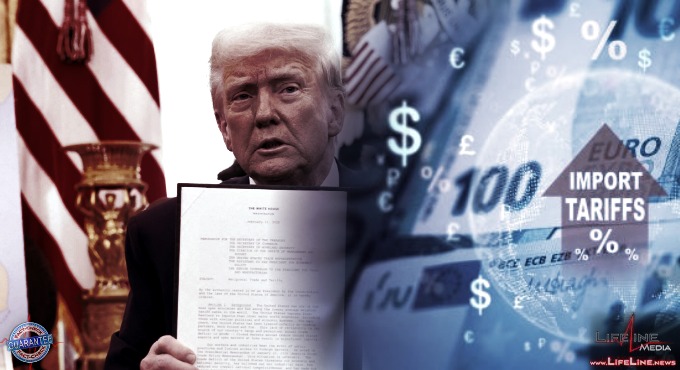

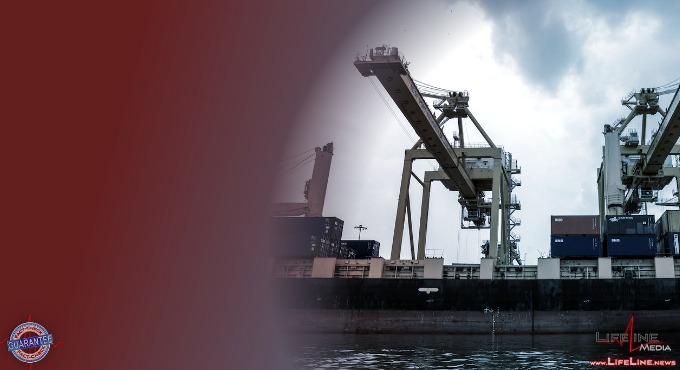
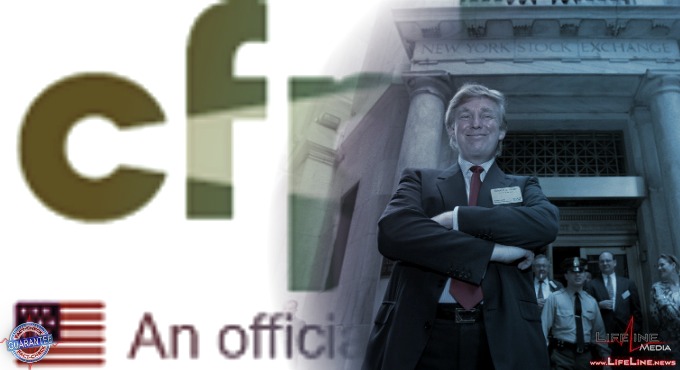
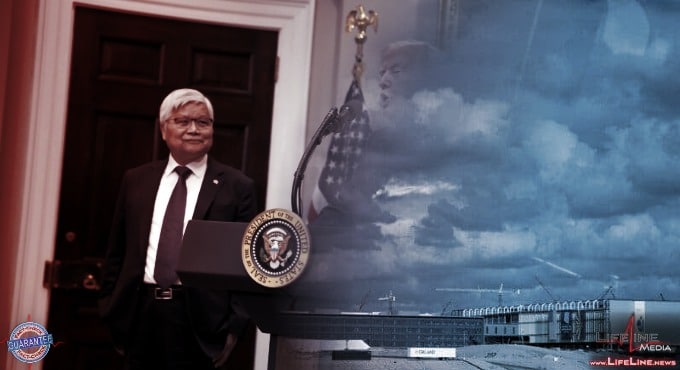


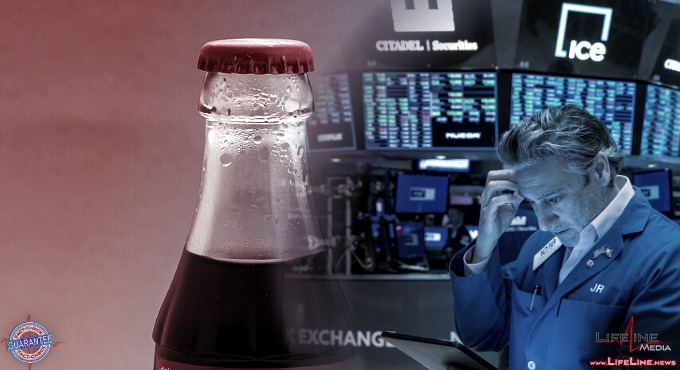

Social Chatter
What the World is SayingWorld Container Index - 09 Jan | Excerpts: “…increased 2% to $3,986 per 40ft container this week.” | “…Drewry expects rates on the Transpacific trade to rise in the coming week, driven by front-loading ahead of the anticipated tariff hikes under the incoming Trump Administration.”. World Container Index - 09 Jan | Excerpts: “…increased 2% to $3,986 per 40ft container this week.” | “…Drewry expects rates on the Transpacific trade to rise in the coming week, driven by front-loading ahead of the anticipated tariff hikes under the incoming Trump Administration.”
. . .www.cnbc.com/2023/01/16/as-china-reopens-and-data-surpris... As China reopens and data surprises, economists are starting to get less gloomy ▫️ Barclays on Friday raised its global growth forecast to 2.2% in 2023, up 0.5 percentage points from its last estimate in mid-November. ▫️ Berenberg also ...
. . .www.cnbc.com/2023/01/16/as-china-reopens-and-data-surpris... As China reopens and data surprises, economists are starting to get less gloomy ▫️ Barclays on Friday raised its global growth forecast to 2.2% in 2023, up 0.5 percentage points from its last estimate in mid-November. ▫️ Berenberg also ...
. . .www.cnbc.com/2023/01/16/as-china-reopens-and-data-surpris... As China reopens and data surprises, economists are starting to get less gloomy ▫️ Barclays on Friday raised its global growth forecast to 2.2% in 2023, up 0.5 percentage points from its last estimate in mid-November. ▫️ Berenberg also ...
. . .www.cnbc.com/2023/01/16/as-china-reopens-and-data-surpris... As China reopens and data surprises, economists are starting to get less gloomy ▫️ Barclays on Friday raised its global growth forecast to 2.2% in 2023, up 0.5 percentage points from its last estimate in mid-November. ▫️ Berenberg also ...
. . .